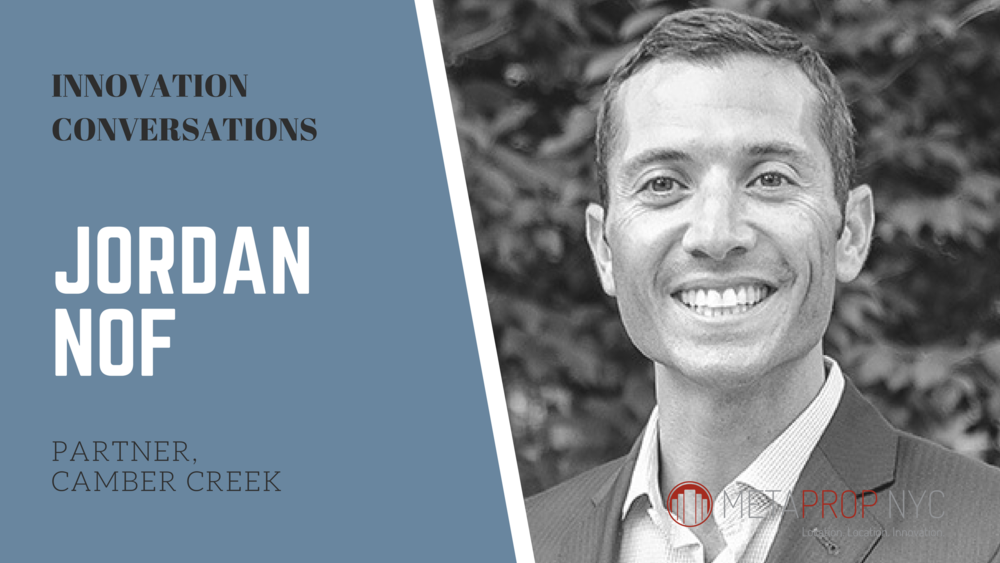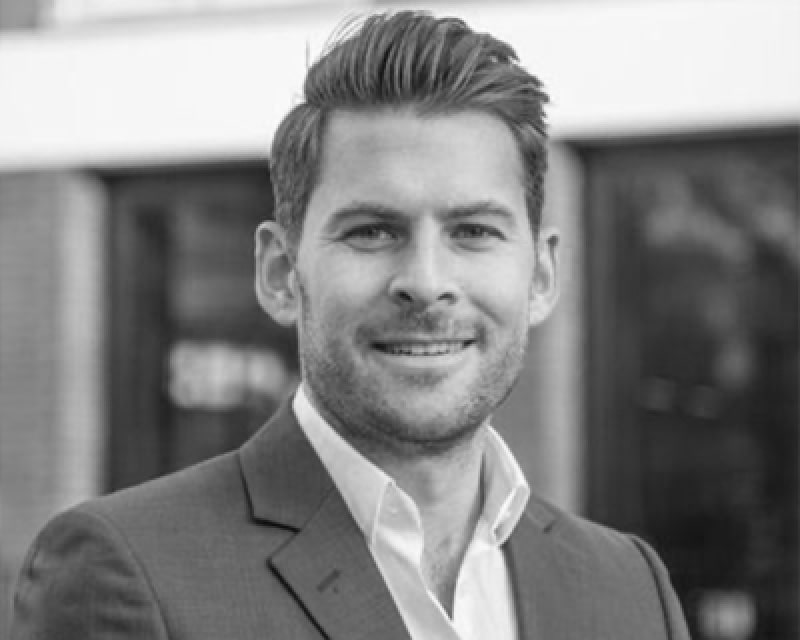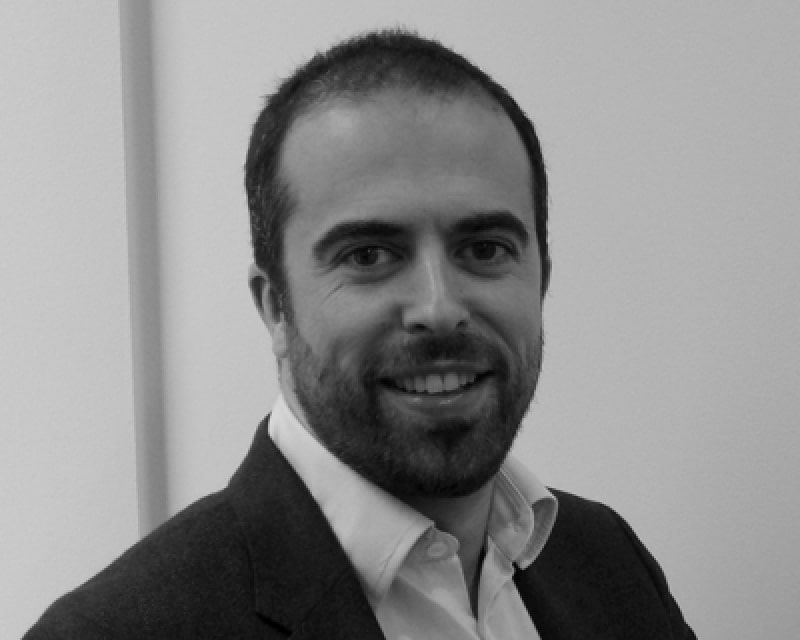Jul 10,2015
WHAT ARE YOUR DAY-TO-DAY RESPONSIBILITIES IN YOUR ORGANIZATION?
As the Head of Investments at Tusk Ventures, I am responsible for overseeing all aspects of the firm's venture practice and investment strategy. My day-to-day responsibilities include sourcing, evaluating and recommending companies that satisfy our investment mandate and are positioned for Tusk Ventures to add significant strategic value in our sweet spot of solving complex problems in highly regulated marketplaces. We have reached the point where cash has become the least valuable asset that an investor should bring to the table. Along with funding, entrepreneurs need to look for a trustworthy partner who provides the relevant experience as well as access to people and distribution channels that they would not have otherwise. I focus on identifying the right startups (10-12 annually) where we are best positioned to foster these types of partnerships by helping them navigate the regulatory hurdles, incumbent players, and public perception to become the next generation of great companies.
DESCRIBE HOW YOU BECAME INTERESTED IN REAL ESTATE TECHNOLOGY AND INNOVATION.
I became interested in real estate technology while working as a Director at Blackstone within the Innovations group. My role was primarily focused on the firm's corporate venture capital portfolio, identifying companies that could help accelerate either the firm’s operations or those of our portfolio companies. Given Blackstone's global footprint in real estate, I felt that it was an area where we could really help tip the scales for a company in the vertical. From this unique position at the nexus of real estate entrepreneurs, investors, and end-users, I led the firm's first real estate technology investment in VTS. Since then, the CRE technology space has experienced explosive growth in terms of dollars raised and number of startups in the space.
HOW IS TODAY’S REAL ESTATE TECHNOLOGY DIFFERENT FROM WHEN YOU STARTED YOUR CAREER?
When I first started analyzing the CRE Tech space, there were no more than a handful of companies in the vertical. Most of the real estate startups were focused on the residential market, chasing the footsteps of Zillow and Trulia. Since then, there have been tremendous opportunities exposed that could bring increased transparency to this once opaque market. Examples of disruptors include: - Leasing & Asset Management Workflow (VTS) - Shared/Flexible Office Space (LiquidSpace, Breather) - Crowdsourced Data (CompStak) - P2P Lending (RealtyMogul) - Mortgage Refinancing (Lenda) - Crowdfunding (RealtyShares, Fundrise) - 3D Visualization (Floored) - Smart Access Building Control (Latch) - Office Cleaning & Management (Managed By Q) There are even companies now that can provide owners with ancillary revenues for their unused parking spaces (ValetAnywhere, Zirx)
WHAT IS THE MOST IMPORTANT INNOVATION AND TECHNOLOGY-DRIVEN INITIATIVE IN YOUR ORGANIZATION TODAY?
Given that I work in venture, my sole focus is to foster and accelerate entrepreneur driven innovation by providing both intellectual and financial capital. Tusk Ventures is focused on selectively partnering with startups to solve complex problems in highly regulated marketplaces. Our team develops an underlying strategy and executes full scale multi-jurisdictional campaigns to eliminate regulatory hurdles, achieve policy goals and shape public perceptions. Where possible, we collaborate with governments and incumbent organizations to pursue aligned goals. Where necessary, we challenge regulatory regimes and assemble coalitions to change the status quo. Our mission is to serve as a catalyst, providing sustainable growth for the next generation of great companies.
WHAT DO YOU DO TO STAY ON TOP OF CUTTING EDGE TRENDS AND DEVELOPMENTS IN REAL ESTATE TECHNOLOGY?
Taking a similar approach to learning about any new new industry, I have found that speaking to everyone I can in the RE Tech ecosystem is the best way to get a variety of perspectives about the newest technologies and meet high caliber founders. I utilize every aspect of my network to stay on top of the latest trends and developments, including: - Entrepreneurs - Real Estate Asset Managers - Other Venture Capitalists - Angel investors - Lawyers - Investment Bankers - Accelerators and Incubators - University Entrepreneurship Programs In addition, my team and I use private company market data to conduct analyses and ensure that nothing has gone under our radar.
AS A MENTOR, WHAT IS THE #1 VALUE YOU BRING TO A HIGH-GROWTH REAL ESTATE TECH START-UP?
Deep real estate tech experience - which allows me to share a first-hand understanding of: - What investors are looking for in early stage RE tech companies - What potential enterprise customers will require prior to implementing your software into their businesses - The hurdles you can expect from large incumbent players and other early stage competitors (and how to overcome them) - Operating advice on how to build a high-growth business - How to efficiently raise capital from both strategic investors and traditional VCs by focusing your deliverables on what matters most to them
WHO HAVE BEEN YOUR MOST IMPORTANT MENTORS AND WHY?
Bill Murphy (CTO of Blackstone and former Co-Founder of Capital IQ) is a mentor that had a tremendous impact on me and helped shape my career path into venture capital. The only thing better than learning from your mistakes is learning from the mistakes of others, and he gave me the opportunity to do that by sharing the invaluable insights he learned while sitting on the other side of the table as an entrepreneur at Capital IQ. By running his department like a standalone business, he gave me instrumental exposure into being a successful operator. Finally, his management style was one that really resonated well with me. Tenacity, grit and drive are all imperative to success, and his career is proof of that.
WHAT IS YOUR FAVORITE BUSINESS BOOK?
I am going to skip From Good to Great and The Art of War and hopefully go a bit off the beaten path here with When Genius Failed by Roger Lowenstein. The book illustrates several extremely important themes in navigating markets and building a sustainable business. First, no matter how successful you have been in the past, you must continue to push yourself to always strive and learn more. In addition, it is imperative that your business strategy remains nimble. Thanks to Innovation, the world is rapidly evolving. However, that also means that what once was a profitable business model can become obsolete very quickly - always stay on your toes. The book begins a chapter with one of my favorite quotes - "Markets can remain irrational longer than you can remain solvent", by John Maynard Keynes. Nobody is insulated from rapid changes in market dynamics – every VC could be banging down your door today, but not return your phone calls tomorrow. Founders should always remember that.
WHAT IS ONE INTERESTING THING ABOUT YOU THAT MOST PEOPLE DON’T ALREADY KNOW?
Although I am originally from Florida, my favorite thing to do (outside of investing in startups) is back-country skiing.







